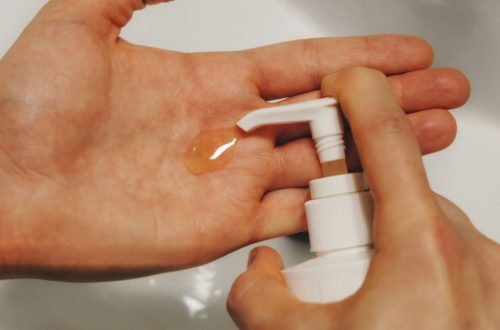
Acne Myths and Facts
I, like so many people, have struggled with acne for most of my life. It started insidiously when I was a teenager, and then progressed to overtake most of my face and leave me with scars. Back in those days I thought I could cleanse my way to clear skin. Countless TV and magazine ads had taught me that if I emulated any of a number of famous blonde ladies and splashed my face with a bunch of water that all would right itself. Instead I ended up with irritated skin and a soaked bathroom. As the years have gone on, I’ve been able to gain control of my acne. My own struggle informed my path to becoming a dermatologist, and I now I revel in the opportunity to help so many people vanquish the beast that I know so well. The first step to this journey is unlearning so much of the information we’ve been taught over the years. Let’s debunk the biggest myths about acne.
Myth: Acne is a cosmetic concern.
Time and again, people suffering with acne are told that it’s “cosmetic.” It’s what’s on the inside that counts, right? Who cares about a few pimples?
Fact: Acne is a medical condition.
The truth is that acne is a multifactorial disease where normal physiologic functions of the skin go haywire. While it may seem like a superficial concern, acne can lead to permanent disfigurement in the form of scarring. Skin with acne scars doesn’t just look different, it doesn’t function in the same way that normal skin does. Some types of acne can even be signs of broader internal medical conditions like polycystic ovarian syndrome. Furthermore, people with acne have higher rates of anxiety and depression than the general population. It’s not just skin deep.
Myth: Acne is a teenage problem.
Acne affects about 85% of 12 to 24-year-olds. That means we should grow out of it right?
Fact: Acne affects adolescents and adults alike.
For many people, acne doesn’t magically resolve when they hit adulthood. There are also many adults who never had acne as teenagers that develop it later on. The medical literature shows that roughly 35% of women and 20% of men in their 30s still struggle with acne.
Myth: If you have acne, you’re probably not washing your face enough.
Like so many people, I used to think that washing my face more would get rid of dirt and clear my skin. The cleaner you are, the less acne you have, right?
Fact: Having acne doesn’t mean you’re “dirty.”
There are multiple factors that lead to the formation of acne. Part of the reason it arises in adolescence are hormonal effects on the makeup and production of sebum, the oil naturally produced by our skin that helps protect it and gives our T-zones that “oil slick” aesthetic we all love. Bacteria also love to feast on sebum like influencers jumping on the mukbang trend. This includes Propionibacterium acnes, the organism sometimes referred to as “acne-causing bacteria.” While many acne treatments target P. acnes, there’s no way to fully get rid of it. In fact, we all have P. acnes living all over us as part of our “normal flora.” It seems to be the response to bacteria that causes pimples to form. In short: having acne doesn’t mean you’re dirty or infected. It means you respond differently to normal conditions.
Myth: Your skin will clear if you just drink more water/eat better.
This one always seems to rear its ugly, misinformed head on social media when it comes time for new year’s resolutions. #hydrateyourwaytoclearskin, right?
Fact: Dietary intake may affect acne but isn’t the only factor.
To my knowledge, no one has been able to prove an association between subclinical dehydration and acne formation. There is, however, some evidence showing that skim milk intake is correlated with more severe acne, and that diets rich in high glycemic index foods correlate with acne in general. There haven’t been large trials to evaluate dietary modification as a treatment for acne yet, but there is little reason to believe that they would work. For example, while skim milk was associated with more severe acne, the increased severity resulted in just a few more pimples overall. The bottom line: while a healthy diet is good, changing your diet alone will not be enough to clear your skin.
Myth: There’s a miracle skincare product that will clear your skin.
But what about all these products that claim to cure acne? If it’s good enough for Kendall Jenner, it should be good enough for me, right?
Fact: Many people will not clear their acne without prescription-strength medications.
While some people with mild acne may see improvement by changes to their skincare routine alone, this is not the reality for many people. If there was a cheap, easy, miraculous cure you could just order online, none of us would have acne. That’s not to say that all hope is lost. There are a number of effective treatments for acne, including prescription-strength topical and oral medications. For many, the first step to clear skin is talking to your doctor and building a strategy that will work for your specific skin type, concerns and lifestyle. If you’ve been suffering in silence with your acne, I strongly represent consulting a board-certified dermatologist for a personalized acne action plan that will help you achieve your clear-skin goals.





3 Comments
Pingback:
Pingback:
Pingback: